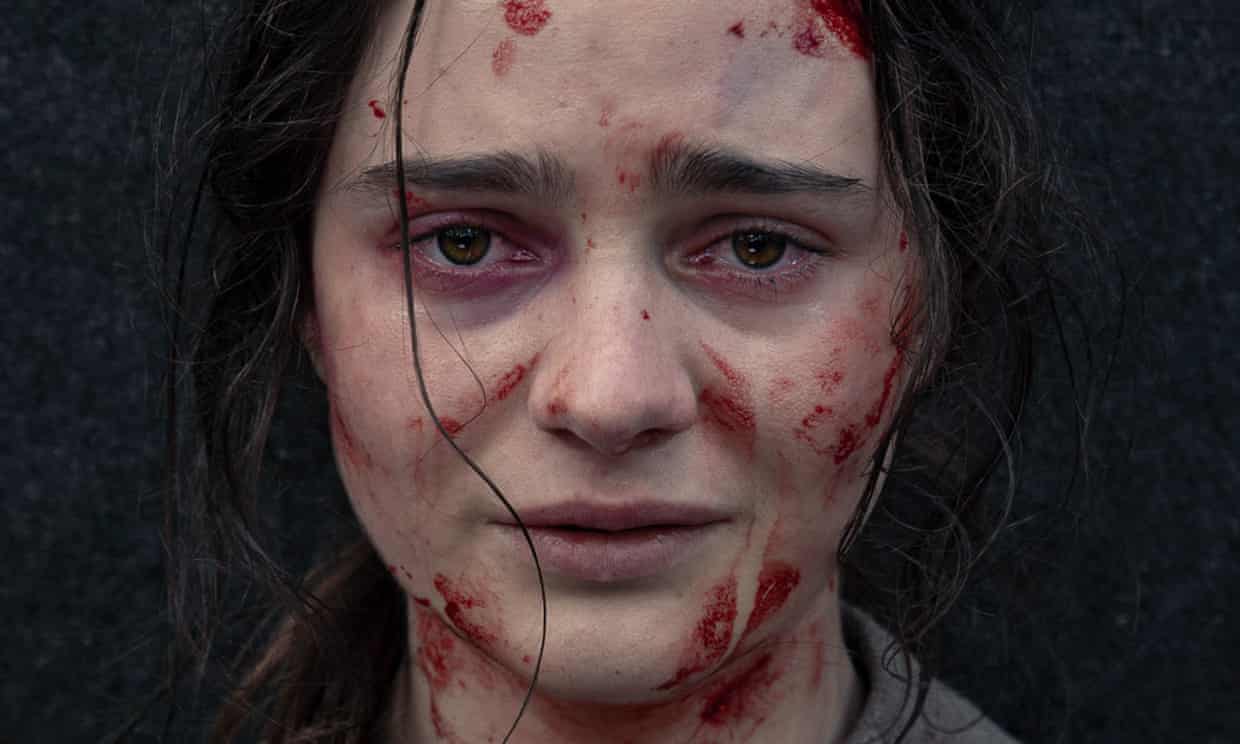
The Nightingale review – gut-churning colonial rape-revenge drama
by Peter BradshawIn Jennifer Kent’s follow-up to The Babadook, set in 19th-century Tasmania, an Irishwoman seeks payback after being brutally gang-raped by British troops
Jennifer Kent is the Australian actor-turned-director who in 2014 made a sensational feature debut with her cult horror classic The Babadook, about a child’s haunted storybook. Now she has switched modes to a more obviously brutal and generically familiar kind of period Australian cinema, and for the first 20 minutes of The Nightingale, I missed the subtler, more sinuous and more contemporary kind of film-making of that first movie.
The Nightingale initially feels like a rape-revenge horror heading one way and in one style. But the power and sheer command of Kent’s direction enforced this film’s grip on me, along with the fluency and urgency of her storytelling, the eerily beautiful images of wilderness from cinematographer Radek Ładczuk and the fiercely committed performances of Aisling Franciosi in the lead and of the indigenous Australian actor Baykali Ganambarr. Kent’s central narrative thrust branches and diversifies into something more complex, so that the movie even becomes a kind of epic, although perhaps the ending, and grisly, long-anticipated climax, make it feel as if the story has run out of road.
The setting is 19th-century Tasmania (Iutruwita in the indigenous language) where arrogant Lieutenant Hawkins (Sam Claflin) presides over an undisciplined and demoralised company of English soldiers with the help of a boorish Sergeant Ruse (Damon Herriman), brutalising the indigenous peoples with a quasi-genocidal programme of land clearance. In his garrison, where sloppiness and drunkenness is the order of every day, Hawkins is attended by young Irishwoman Clare (Franciosi), a former convict, now married with a young baby; her early release ordered by Hawkins. He is smirkingly infatuated with her beauty and lovely singing voice – he has nicknamed her “The Nightingale” – while smugly reminding her what she supposedly owes him. Soon, Hawkins violently takes what he claims is his, along with other soldiers, in a brutal gang rape.
With a terrible inevitability, Clare somehow survives the mass assault and this cowed songbird becomes a bird of prey intent on vengeance, while in anguish from what she has experienced and, in a refinement of her agony, still lactating. As Hawkins sets off on a journey to the nearest township to demand the promotion he petulantly claims is justly his, Clare follows with the help of indigenous Australian tracker Mangana, or Billy, nicknamed “Blackbird” (Ganambarr).
Clare and Billy make common cause against the English imperial invader: both have experience of being colonial subjects, and then being seconded to a kind of servant-administrator class burdened with making this imperial larceny work. Billy at first sees Clare as nothing but white. “You England,” he says and Clare replies: “I’m Ireland, I hate the fuckin’ English.” The relationship between the two does not exactly deepen or become more nuanced, but it accumulates in strength as they go on their horrendous journey, surviving horrors that will include more murder and more rape.
The Nightingale is not dissimiliar in its mise-en-scene to Justin Kurzel’s True History of the Kelly Gang, scheduled for release here next year and it is arguably in an Australian-exploitation vein. The violent horror and despair in The Nightingale is stomach-turning, but it could well be that it hardly conveys a fraction of the reality of what was actually involved in subduing the Australian continent, not to mention its use as a judicial dustbin. The intelligence of Kent’s direction and the humanity she reveals in both Clare and Billy give the film its arrowhead of power.
• The Nightingale is released in the UK on 29 November.